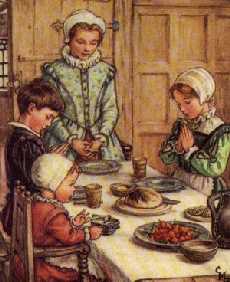 The week from the Wednesday before to the
Wednesday after Laetare is called "Mid-Lent" in
most countries. It is a time of many popular customs and
traditions, most of them connected with ancient spring
lore. The week from the Wednesday before to the
Wednesday after Laetare is called "Mid-Lent" in
most countries. It is a time of many popular customs and
traditions, most of them connected with ancient spring
lore. In Germany and among the northern Slavic nations the "burial of winter" is celebrated in rural sections. In Poland children carry the effigy of a stork through the village; thus they greet the return of the bird as a harbinger of the approaching summer. In France and Canada, Mid-Lent is kept with a joyous meal and entertainment in the home. A rite performed in central and southern Europe is the decoration of wells and fountains with branches and flowers, to celebrate their final liberation from winter's ice. Laetare Sunday is called Fontana (Sunday of Fountains) in parts of Italy and France because of this. In Germany, Austria, and among the Western Slavs, Laetare Sunday used to be the day of announcing the engagements of young people (Liebstatt Sonntag; Druzebna). In Bohemia the boys would send messengers to the homes of their girl friends to deliver the solemn proposal. In Austria the girls of the village lined up in front of the church after Mass; their boy friends would take them by the hand and lead them back into the house of God, and thus "propose" to them by a silent act of religious import. After having prayed together, the couple would seal their engagement with a special meal. It is a curious fact that these engagement customs were called "Valentine," although they did not take place on Saint Valentine's day. The name is explained by the fact that Saint Valentine was the heavenly patron of young lovers and engaged couples. In Ireland not only Mid-Lent but the whole season of Lent is the traditional time of matchmaking (cleamhnas). The older people visit each other's homes to discuss the possibilities of matching their sons and daughters. Among the young generation, there is much fun poked at those not yet married. In olden times the roisterers (practical jokers) would try to tie a rope around unmarried men and girls in the days before Lent, and "drag them off to the Skellig," a place associated with wedding rites in ancient times. In some parts of Ireland weddings are held only on Easter Sunday, after the last preparations have been made during Lent. Wednesday of the fourth week in Lent is called "Middle Cross Day" in the Greek Church (Russians, Ukrainians, Serbs, Greeks, etc.); it is a tradition to bake little cakes shaped in the form of a cross, which have to be eaten on this day. |
|
| Return to Customs Page | Go to Lenten Hymns Page |